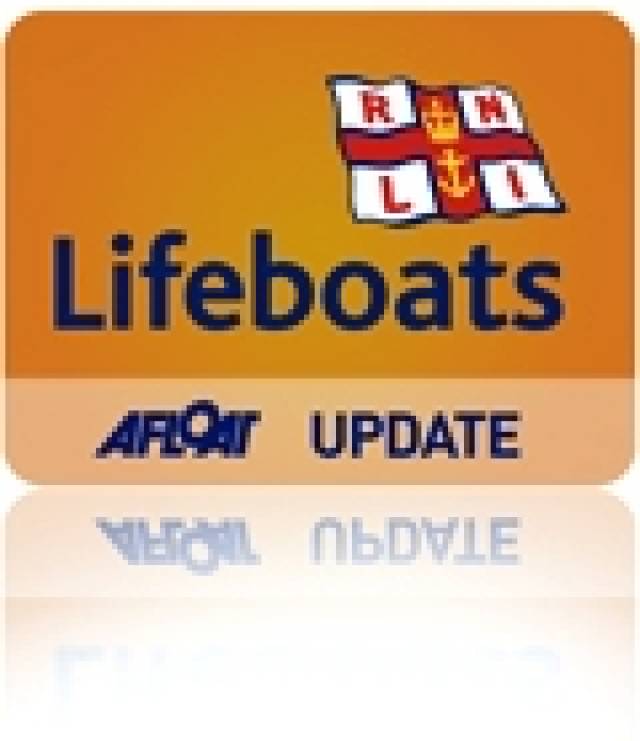Last year, Irish lifeboats launched 14 times during Christmas week (from 24 December to 1 Jan inclusive). This Christmas season Irish lifeboat volunteers with the Royal National Lifeboat Institution (RNLI) may well leave festive family celebrations behind again to brave rough seas and winter weather to save lives at sea.
In the last five years alone lifeboat crews around Ireland have responded to 55 calls for help during Christmas week, rescuing 41 people at the one time of year most people are at home with their families. And this year as in previous ones the RNLI’s 1,500 Irish volunteer crews will be ready to drop everything as soon as their pagers go off. They may be called to help those in trouble at sea or to provide emergency medical evacuations from some of the islands. Previous callouts have also seen the lifeboat crews transport emergency medical supplies to inhabited islands when the weather has been too rough for normal transport.RNLI Operations Director, Michael Vlasto comments: ‘More lifeboat launches means more volunteer crews called away from their family and friends during the Christmas period. At this time of year, I’m always reminded just how extraordinary our volunteers are, giving up valuable time with their families throughout the year to rescue people everyday – and Christmas time is no exception. We are proud to have such dedicated volunteers, with such supportive families who spare them at a time when most other families come together.’
Gareth Morrison RNLI Deputy Divisional Inspector for Ireland added, “Our lifeboat service is dependent on donations and legacies. It is thanks to the generosity of the Irish public that we are able to go on providing this service. Their donations and support for events like RNLI SOS Day, help to ensure that our lifeboat crews can continue rescuing people and saving lives, whether inland or at sea.’
Now RNLI volunteer crews are hoping that members of the public will respond to their own ‘SOS’ call this Christmas, by supporting the charity in the run up to its biggest day of fundraising, RNLI SOS Day on Friday 29 January 2010.
Anyone can get involved in RNLI SOS Day and have fun on Friday 29 January 2010 and there will be events taking place around the UK and Republic of Ireland, which are open to members of the public. Visit www.rnli.ie/sos or www.rnli.org.uk to find out how you can get involved or to make a donation.































































